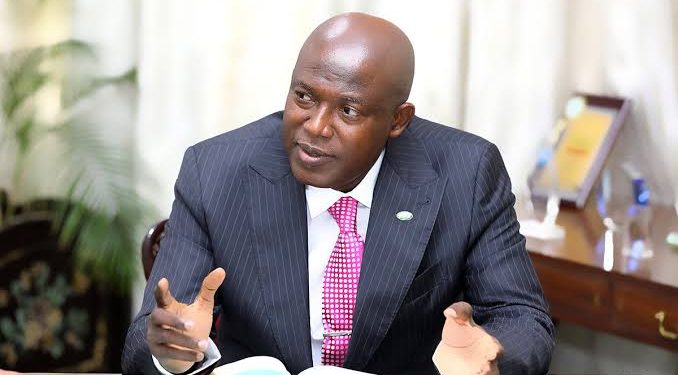The Ebonyi State Government has announced a series of bold reforms designed to position the state as one of Nigeria’s most business-friendly destinations. The initiatives, which include new executive orders, financial interventions, and institutional frameworks, are targeted at easing business operations and creating opportunities for small and medium-sized enterprises (SMEs).
The Director-General of the Ebonyi State Small and Medium Enterprises Development Agency (EBSMEDA), Stephen Odo, explained in Abakaliki that the agency, established in July 2023 as the first under Governor Francis Nwifuru’s administration, is central to the state’s economic agenda. According to him, the mandate is clear: make it easier, faster, and cheaper for businesses—especially micro, small, and medium enterprises (MSMEs)—to start, operate, and grow.
As part of this drive, Governor Nwifuru has signed more than eight executive orders aimed at strengthening the business environment. These include the establishment of a Grievance Redress Mechanism to ensure quick resolution of complaints from business operators, a Public-Private Partnership (PPP) framework to attract private investment, and reforms to Right of Way processes to ease infrastructure development. The state has also introduced a Presumptive Income Tax Regime to simplify compliance for small businesses, a Responsible and Inclusive Land-Intensive Agriculture framework to align land acquisition with global best practices, and measures to improve transparency and efficiency in business-related government services.
To further support businesses, the state has created Small Claims Courts for speedy debt recovery without the need for legal representation, while amendments to the Magistrate Court Law now allow debt cases up to ₦10 million to be resolved more efficiently. These measures, Odo said, are designed to give investors confidence that Ebonyi offers predictability and fairness.
The state government is also driving industrialisation through flagship projects such as the Industriosity Project, aimed at tackling unemployment, bridging the skills gap, and boosting local production. In addition, the “From Street to Shop” programme has provided ₦2 million each to 500 beneficiaries, alongside agricultural training and grants for thousands of smallholder farmers.
Through the World Bank-supported NG-CARES initiative, more than 7,000 micro and small businesses in Ebonyi have received financial support ranging between ₦50,000 and ₦500,000. The government is also paying for free Corporate Affairs Commission (CAC) registrations for qualified businesses and covering export licence fees to stimulate non-oil exports.
To address the long-standing challenge of access to credit, Governor Nwifuru has approved a ₦1 billion loan facility through the Bank of Industry for on-lending to SMEs. Odo emphasized that while grants are helpful, long-term growth requires businesses to build capacity to take loans, manage them effectively, and repay.
Although Ebonyi currently ranks 23rd on Nigeria’s Ease of Doing Business index, the state is confident that the ongoing reforms and the planned establishment of agencies such as the Investment Promotion Agency and the Public-Private Partnership Agency will improve its ranking significantly.
With what Odo described as one of the safest environments in the South-East, a mix of targeted reforms, and strong political will, Ebonyi is seeking to emerge as a new frontier for local, national, and international investment.










